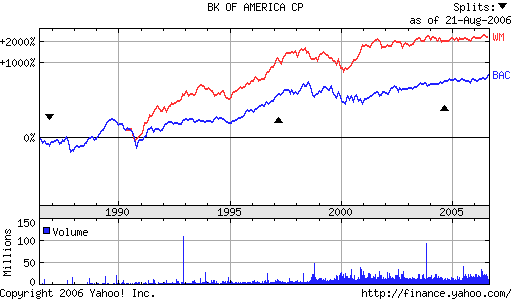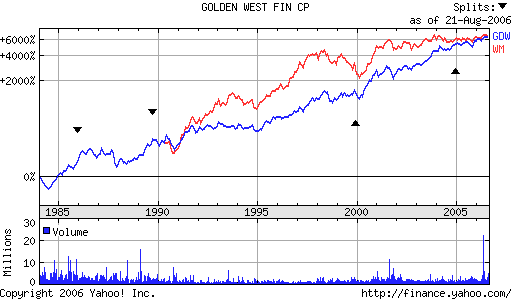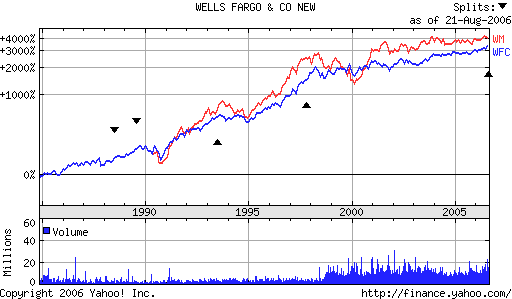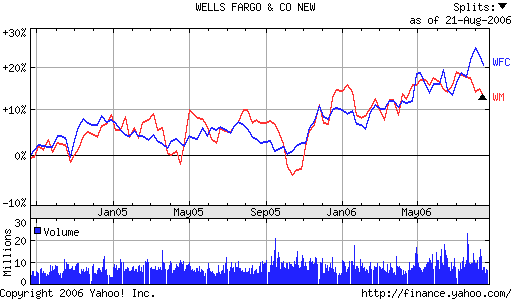[i originally posted this in housing but it had very few views, so i moved it here]
from barrons 8-21-06
i hadn't realized that banks carrying loans that were non-performing would increase their reported profits. the bank has little [immediate] incentive to put non-paying or under-paying mortgages into work-out. if they do that, they report a loss. if, on the other hand, they are "understanding" and allow the mortgage holder to miss payments or underpay in the hope of better times to come, they immediately report the shortfall as profit! i'm not sure what might bring this game to an end. it appears that banks could continue doing this for quite a long time. [SeanO have any input?]
from barrons 8-21-06
Originally posted by barrons
i hadn't realized that banks carrying loans that were non-performing would increase their reported profits. the bank has little [immediate] incentive to put non-paying or under-paying mortgages into work-out. if they do that, they report a loss. if, on the other hand, they are "understanding" and allow the mortgage holder to miss payments or underpay in the hope of better times to come, they immediately report the shortfall as profit! i'm not sure what might bring this game to an end. it appears that banks could continue doing this for quite a long time. [SeanO have any input?]






Comment